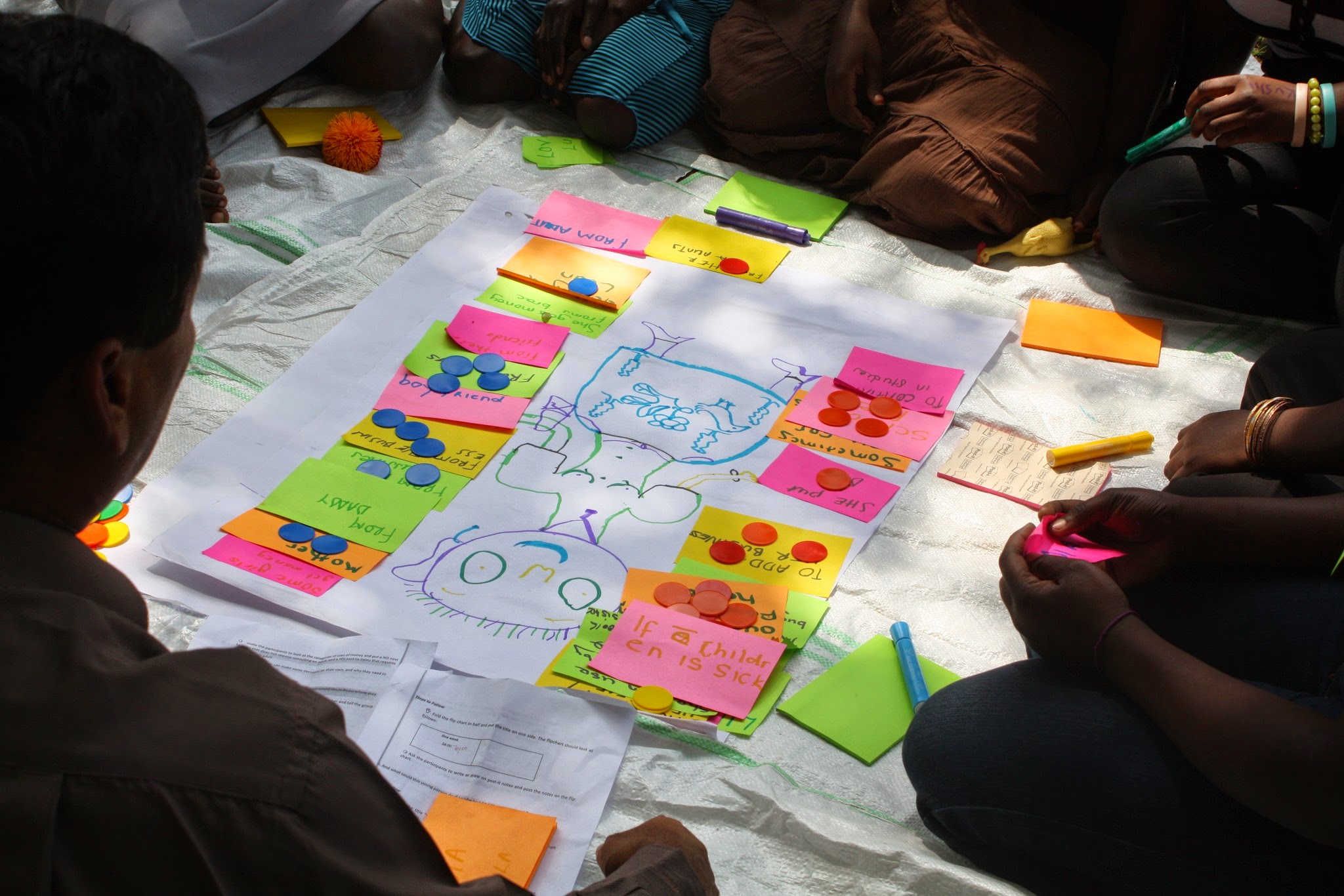Qualitative Assessments
We believe that our approach to qualitative assessments is effective because we design creative and effective research tools..
We believe in designing for specific groups of people. And we can’t do this without getting to know those groups. We believe that our approach to qualitative assessments is effective because we design creative and effective research tools. We have trained teams of experienced researchers around the world that consistently comment that they’ve not experienced our type of youth-centered research.
Our qualitative data set is also larger than what you might typically see. For example, we have seen end line assessments based on 82 hours of field data, whereas we handle upwards of 160 hours. This is because our focus groups are not a list of questions, but are a carefully sequenced series of focused activities with lively discussions. We will often develop two to four tools instead of one focus group tool.
Project 1
Market research in Ethiopia challenges stubborn assumptions and changes direction of content.
Girl Effect in Ethiopia contracted us to undertake extensive market research. At the outset of the market
Our qualitative data set is also larger than what you might typically see. For example, we have seen end line assessments based on 82 hours of field data, whereas we handle upwards of 160 hours. This is because our focus groups are not a list of questions, but are a carefully sequenced series of focused activities with lively discussions. We will often develop two to four tools instead of one focus group tool.

